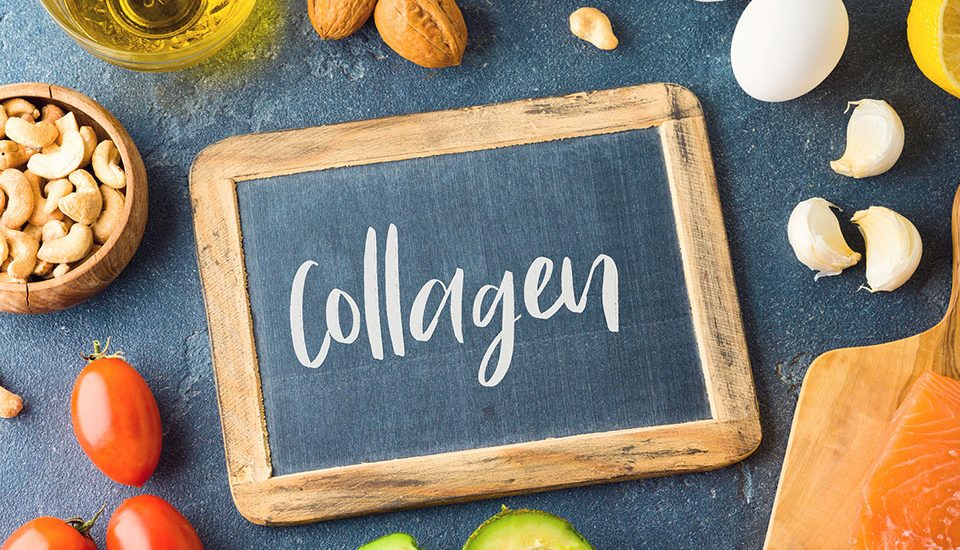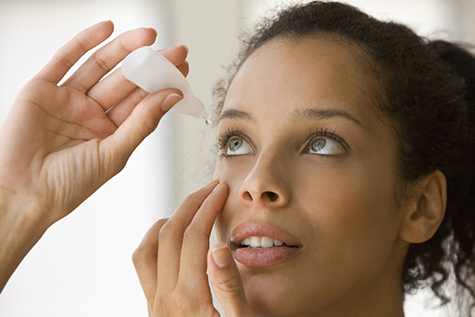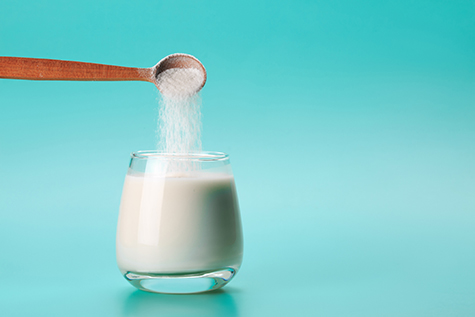Save Your Eyes with Collagen


Anti-Aging Medicine wouldn’t be complete without proper respect being given to this behind-the-scenes amazing nutrient that literally helps hold your entire body together – collagen. It is the second most common substance in your body next to water. Not only does it help “knit” your skin together to keep your skin from sagging but it also helps the ligaments and tendons supporting your joints, stay strong to keep you mobile long into your older years. But what I’d like to tell you about here is the amazing anti-aging benefits that collagen can have on one of your most important organs – your eyes. Read all about it…
Collagen – The Amazing Nutrient That Helps Eyes Stay Young
Your eyes are made up of both fibrous and a more watery gelatinous-type tissue – both of which require optimal collagen intake to make them strong. Collagen is a protein-derived substance, a lot like gelatin. It is abundant naturally in poultry – chicken and turkey. In fact, the combs on roosters are almost completely collagen and HA – hyaluronic acid – another anti-aging “tissue knitting” nutrient. The two nutrients work together to keep supporting structures throughout your body to keep it strong.
Collagen is made in your body by tiny cells called “fibroblasts” then deposits itself most abundantly in your dermis – the deepest most layer of your skin – your eye tissues, as well as your ligaments and tendons of your joints.
As you get older though, your body slows down its production of collagen and HA so that your eyes, skin, ligaments and tendons, hair and nails have less and less of it. What happens? Well, those structures no longer have the strength and support that they need and can start breaking down. You see evidence of the breakdown in your skin as wrinkles – which are cracks and furrows in your dermis from lack of collagen; your ligaments and tendons can start weakening and joints can slip out of place, causing pain on movement.
But, in your eyes, more and more research has pointed to the idea that decreasing collagen, and/or mutations in collagen, which occurs with aging, can result in cataracts as well as glaucoma. Prior research out of India, Possible role of lens collagen in cataractogenesis, (Indian Ophthalmology Journal 1997), has suggested that lack of collagen in the lens of the eye can result in the development of cataracts. Cataracts are crystallized bits that form on the eye lens and cause obstruction of vision. It’s estimated that 50 million, or more, people around the world have cataracts and is the leading cause of blindness. Age-related cataract development is responsible for about 80% of all cataracts and aging decreases in collagen is thought to be a major factor in addition to others like nutrition decline and environmental exposures (sun, wind, pollutants). After the age of 50, your risk for developing cataracts increases greatly.
Glaucoma is a condition of increasing pressure within the eye. Pressure increases because normal drainage of fluids in and out of the eyes becomes blocked. Researchers believe that weakening of the collagen structures of the eyes causes the eyeball to be supported improperly and fluids cannot drain correctly, thus causing buildup of pressure. Like cataracts, glaucoma is another leading cause of blindness worldwide. Therefore, preventing both these conditions is important to vision health as you grow older.
So, how can you guard against developing cataracts and glaucoma, or help improve these conditions if you already have them? One of the ways is to up your intake of collagen in your diet. Here are some ways to do it:
1. Boost Vitamin C levels. Vitamin C helps create collagen. If you are deficient in it, it will be hard for your body to manufacture collagen. It is present in citrus fruits, dark green, leafy vegetables, and in supplements.
2. Boost HA – hyaluronic acid – levels. HA can be found in several food sources like poultry – chicken and turkey – where it is particularly abundant, or in beans, red fruits that contain lycopene, an antioxidant that helps preserve collagen.
3. Take gingko biloba. Improves collagen integrity, helping it not to break down.
4. Eat more soy and cheese. These foods contain genistein which boosts collagen production.
5. Omega-3 fatty acids. Found in fish, nuts, flax. Helps maintain collagen integrity.
6. Avocado. The unique avocado nutrients are research proven to boost systemic collagen.
7. Take collagen supplements. There are many good collagen supplements on the market available in liquid or capsules. Look for “biocompatible” brands.
Boosting, and protecting, your natural stores of collagen can go a long way in preserving not only your eye health as you get older but your entire body. The results of increased collagen production should become noticeable in about 1 month. Optimal collagen stores will also help decrease joint pain by strengthening weak ligaments and tendons, your bone density will increase, your cardiovascular tissues, as well as your teeth and gums will strengthen, your hair and nails will perk up again, skin wounds will heal quickly, and your skin will look smoother, less wrinkled, and younger. Now that’s quite a lot of body-health benefits from one little nutrient!
Stay Well,
Mark Rosenberg, M.D.

